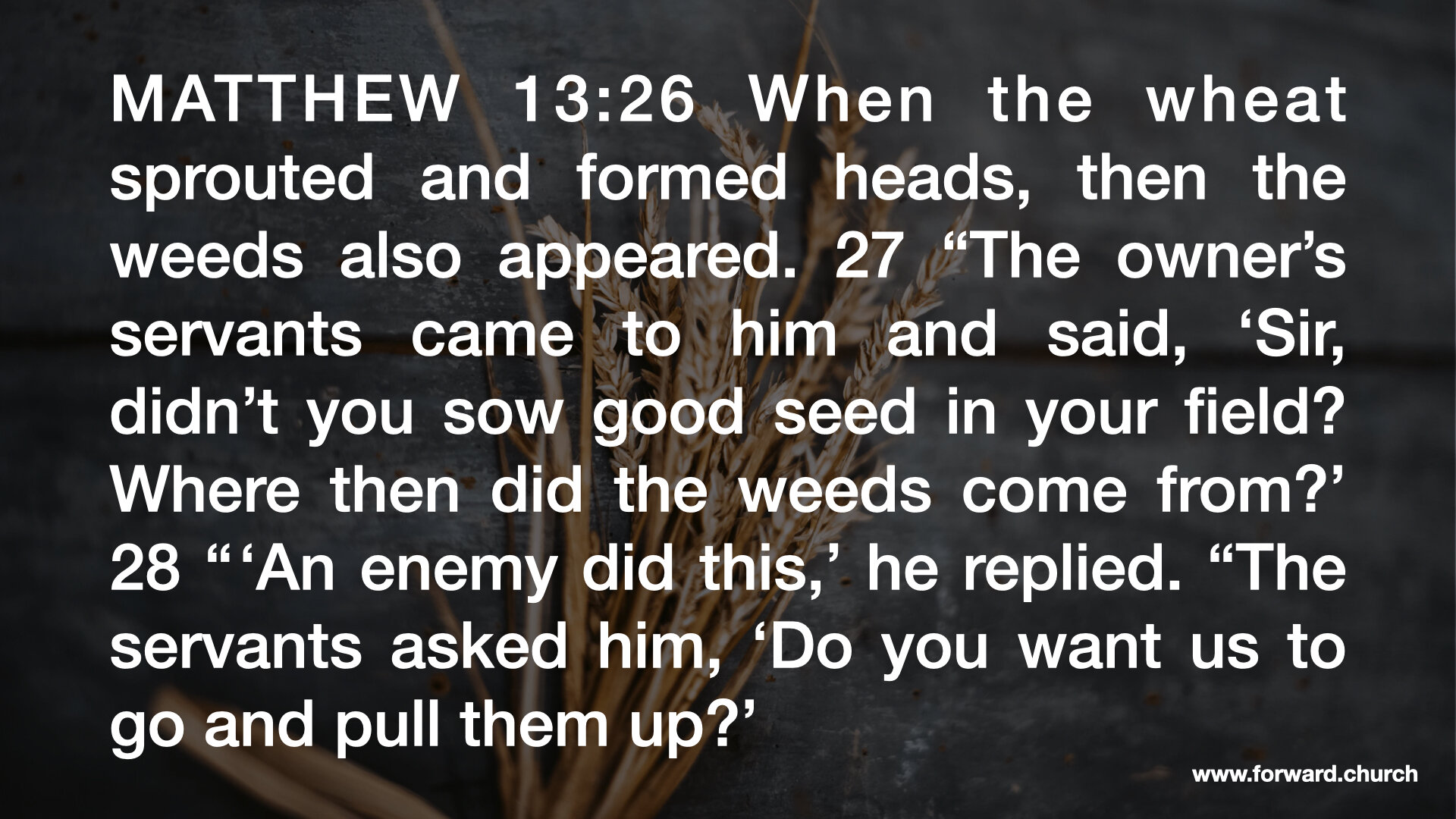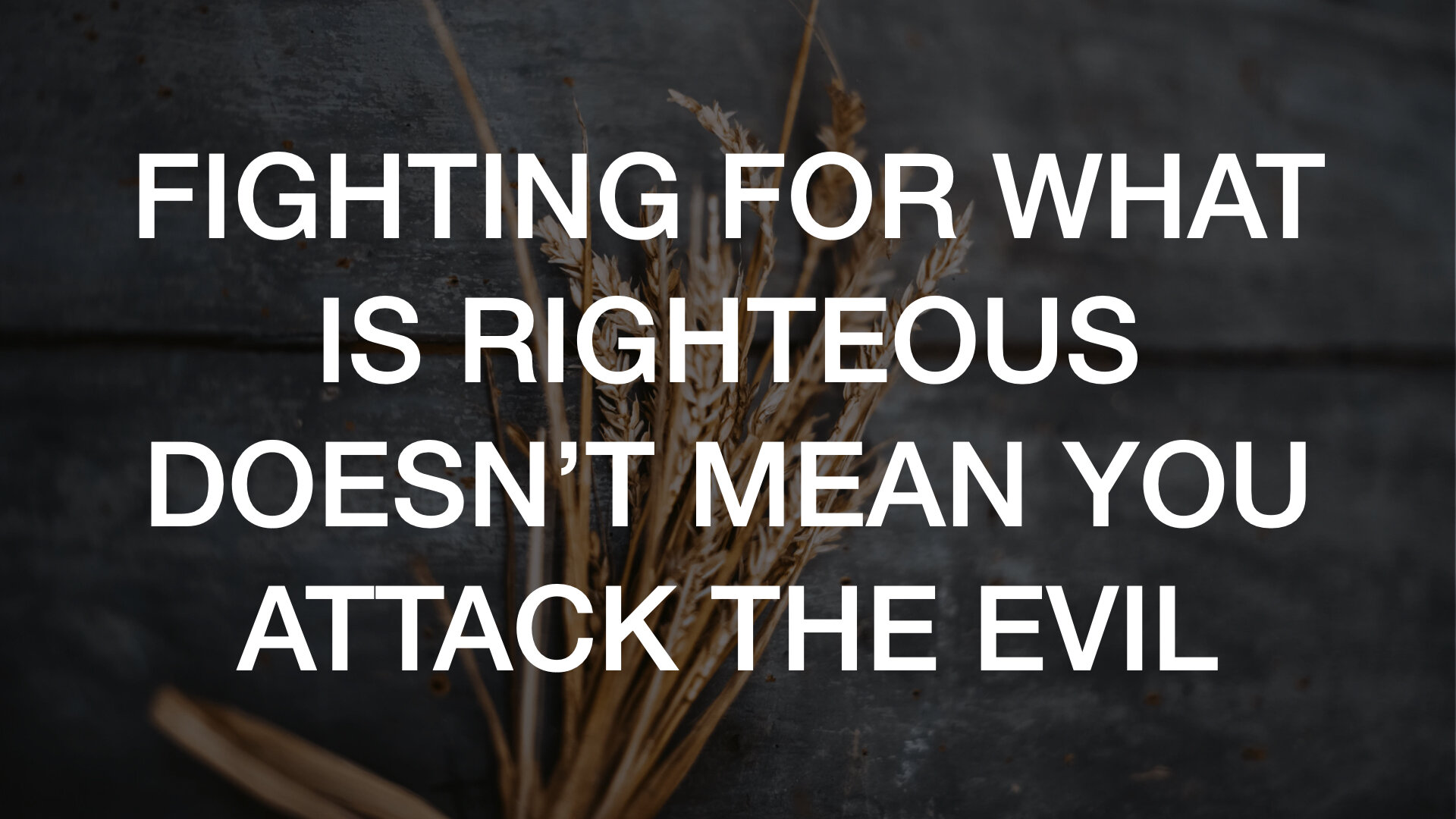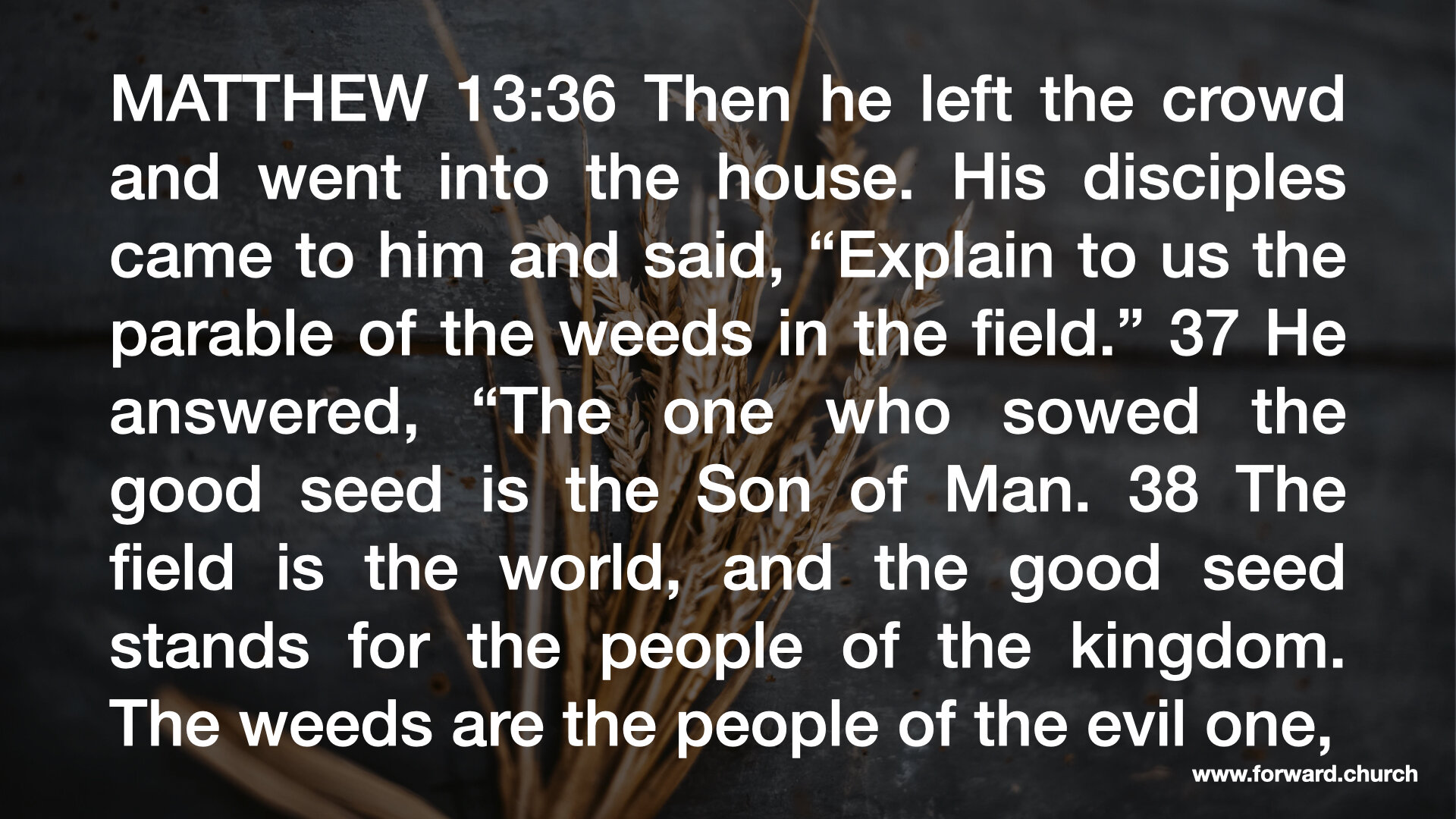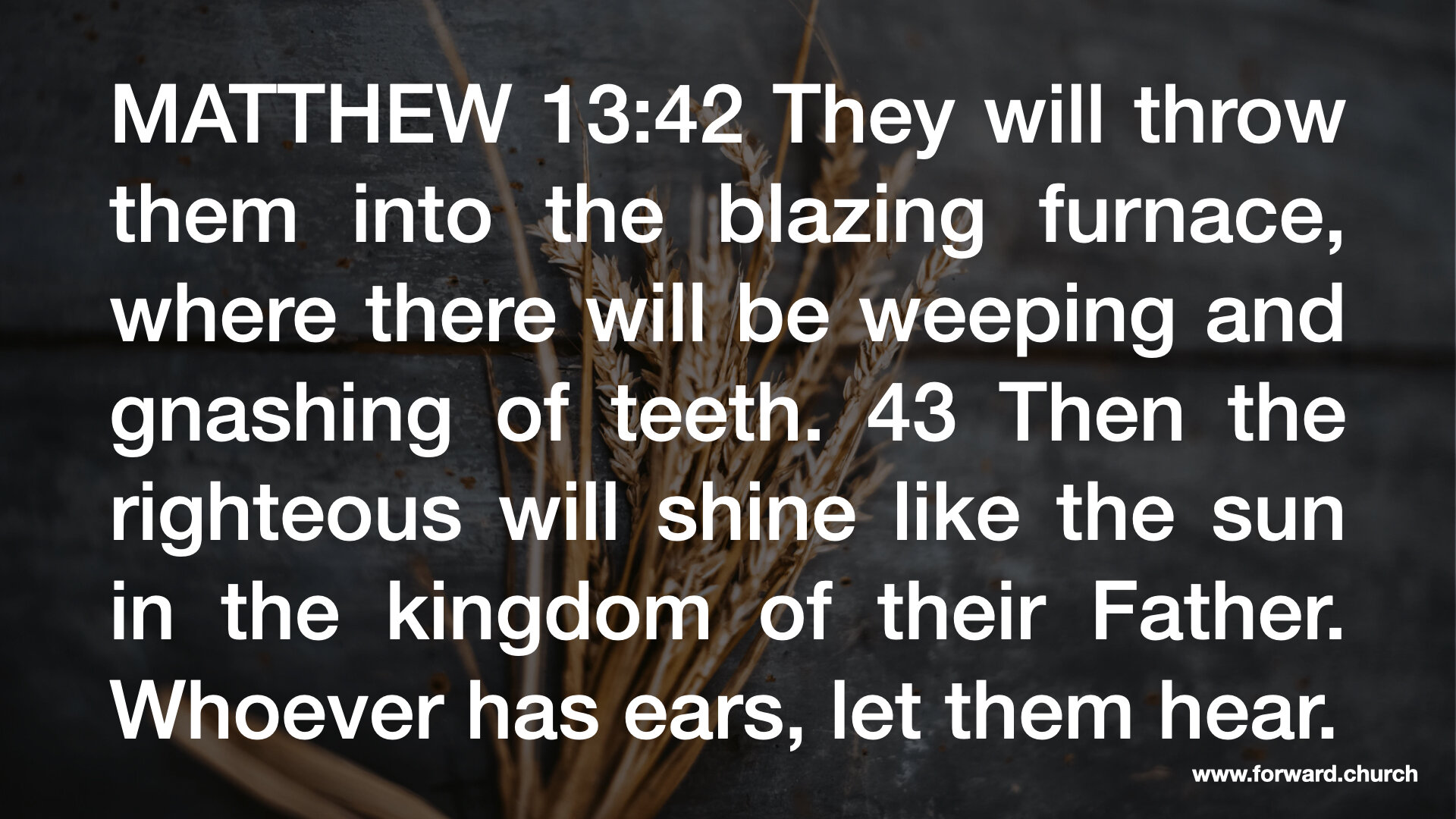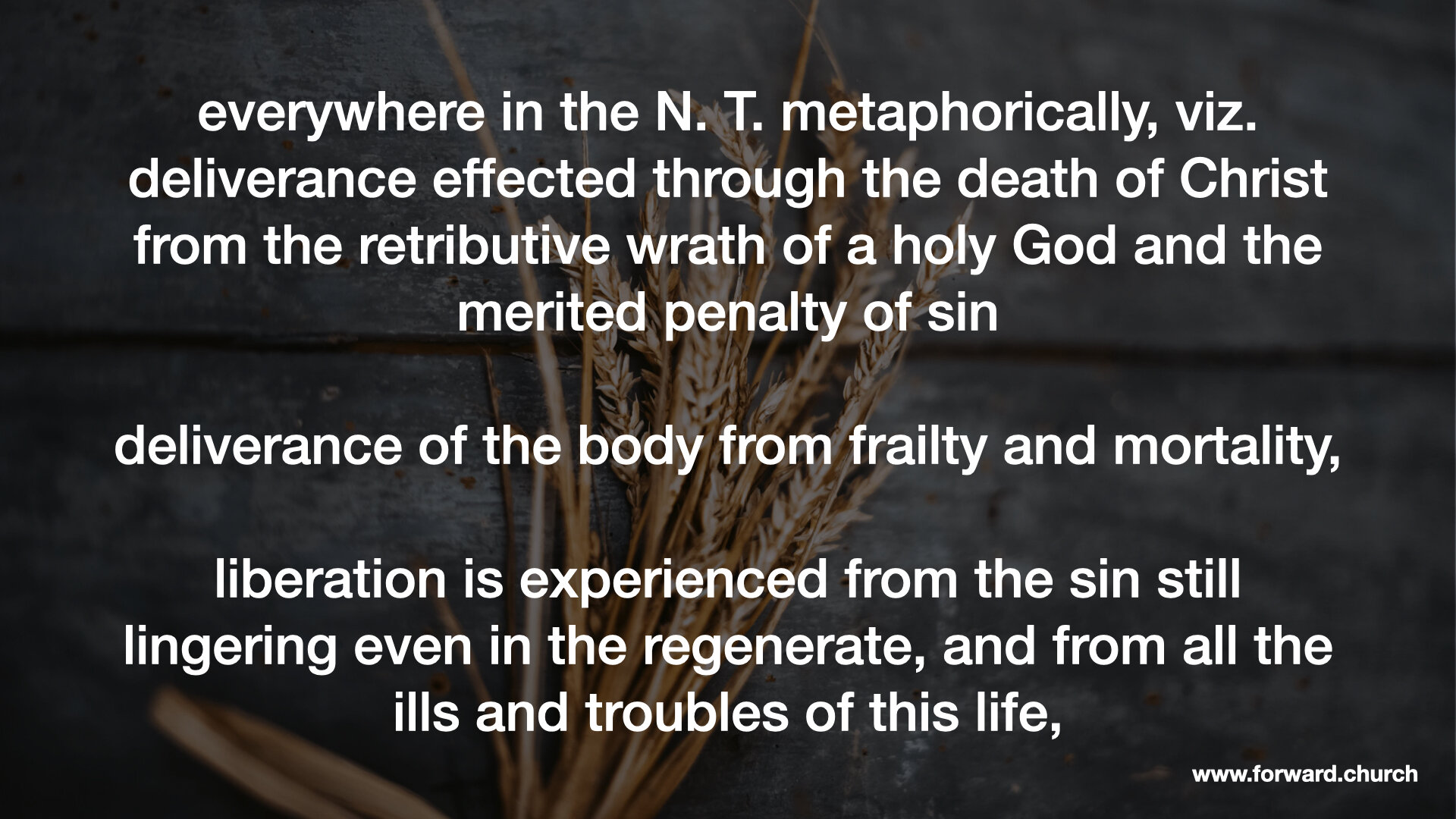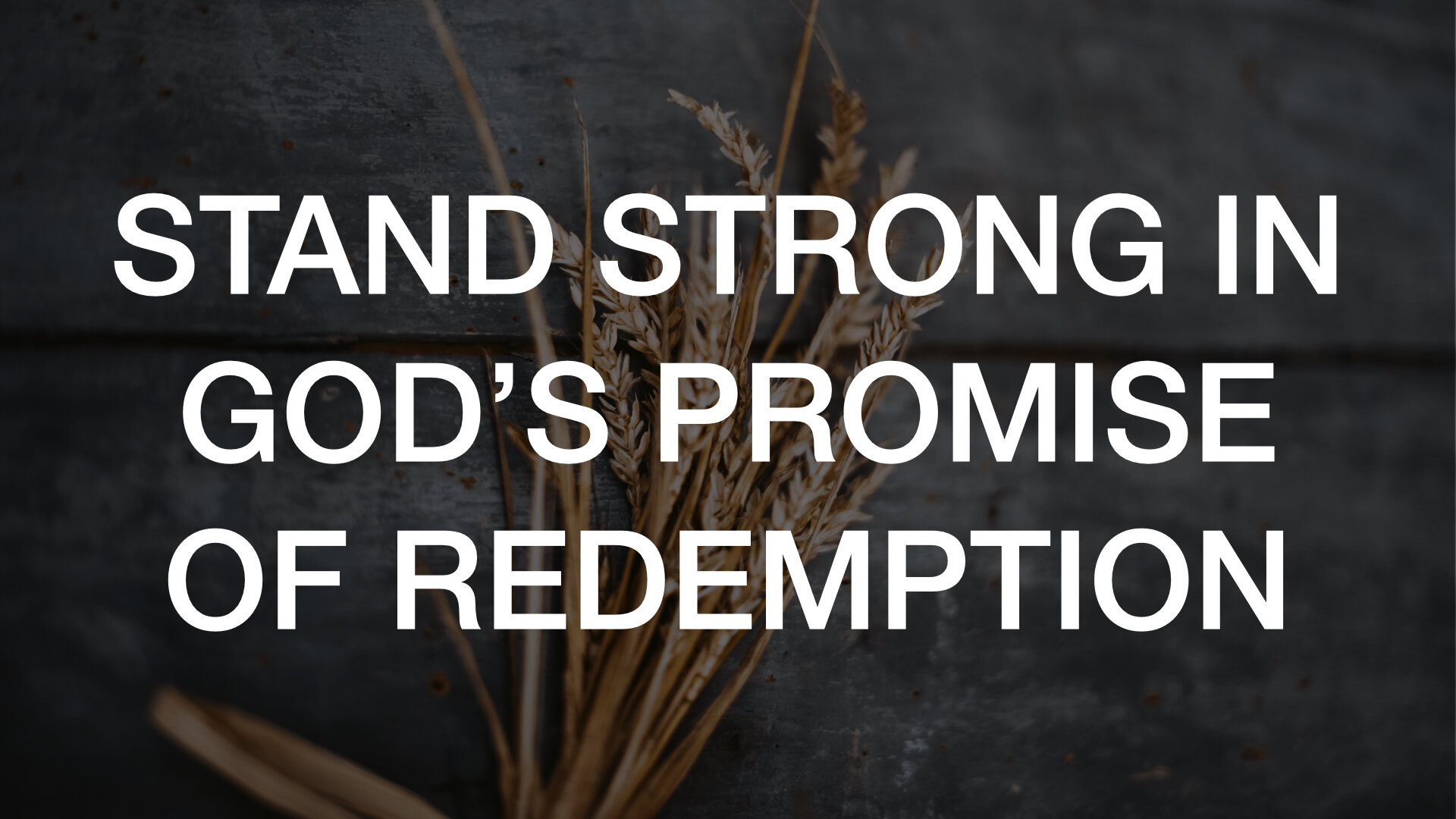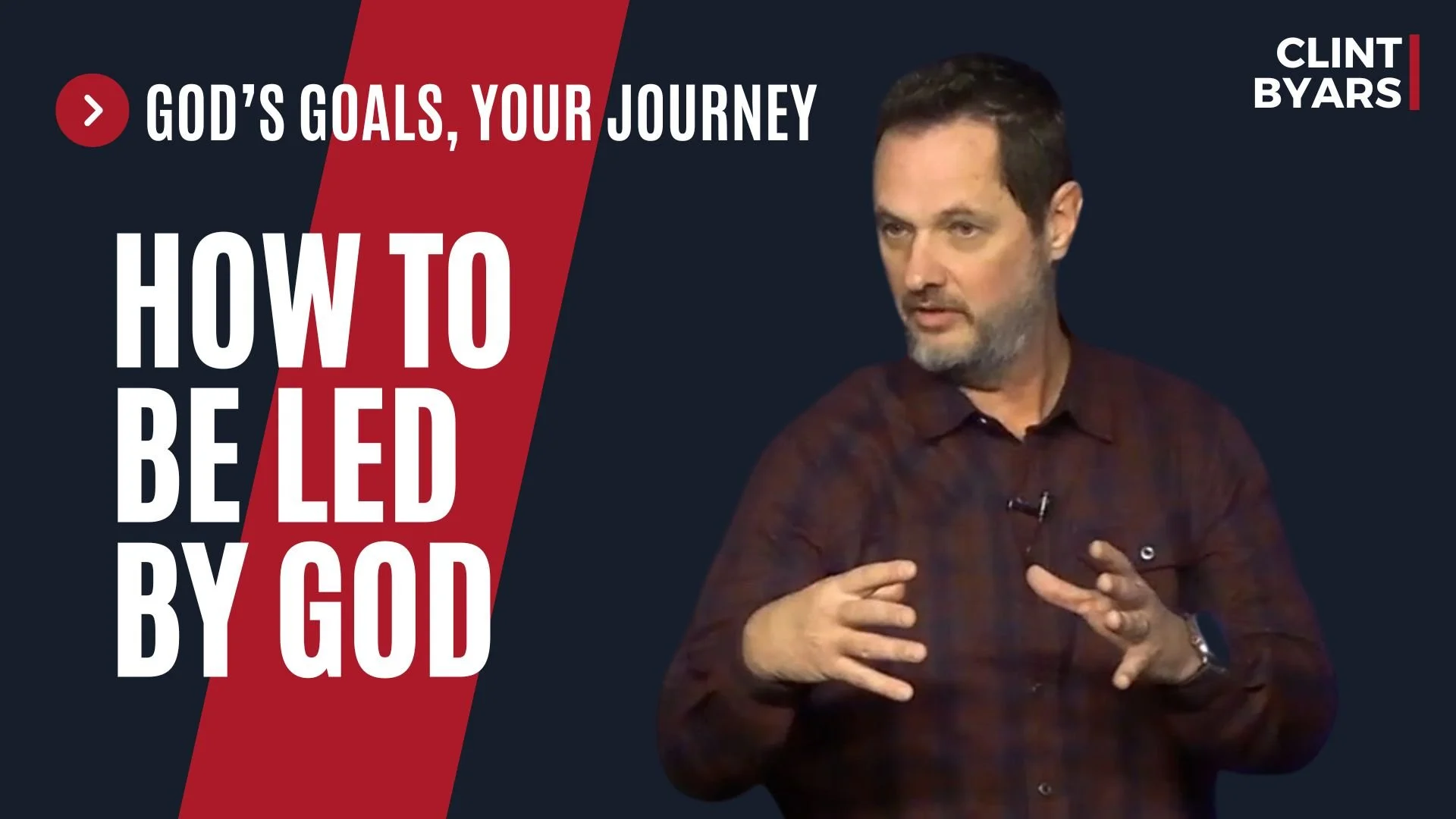Listen on Spotify | Soundcloud | Apple | YouTube
““ ‘No,’ he answered, ‘because while you are pulling the weeds, you may uproot the wheat with them. Let both grow together until the harvest. At that time I will tell the harvesters: First collect the weeds and tie them in bundles to be burned; then gather the wheat and bring it into my barn.’ ””
Jesus teaches the parable of the wheat and tares in Matthew 13:24-29.
24 Jesus told them another parable: “The kingdom of heaven is like a man who sowed good seed in his field. 25 But while everyone was sleeping, his enemy came and sowed weeds (tares) among the wheat, and went away. 26 When the wheat sprouted and formed heads, then the weeds also appeared. 27 “The owner’s servants came to him and said, ‘Sir, didn’t you sow good seed in your field? Where then did the weeds come from?’ 28 “ ‘An enemy did this,’ he replied. “The servants asked him, ‘Do you want us to go and pull them up?’ 29“ ‘No,’ he answered, ‘because while you are pulling the weeds, you may uproot the wheat with them. 30 Let both grow together until the harvest. At that time I will tell the harvesters: First collect the weeds and tie them in bundles to be burned; then gather the wheat and bring it into my barn.’ ”
He explains the parable to His disciples in verses 36-43. While there is an obvious focus on end times in Jesus’ explanation of the wheat and weeds, I want to focus on how the principle applies in your everyday life. I will write more about the end time implications in my next article.
Should We Attack Evil?
One thing that strikes me from this parable is how patient Jesus is. There are weeds in His kingdom, yet He says, ‘let them grow together with the wheat, my Father will take care of the weeds.’ We see that “the weeds” are the people of the evil one in Matthew 13:38, but I want to explore how this principle can help us in other areas of life.
For clarity, let me streamline the principle in this article. Don’t pull up the weeds among the wheat because you might damage the wheat while pulling up the weeds. Let them both grow together and harvest the wheat when it’s ready.
We tend to attack evil once we see it. We are quick to condemn sin. We are quick to cast out devils. We are quick to identify people as sinners. We are quick to dismiss teachers that we perceive as dangerous. And the list goes on.
I am not suggesting that we permit sin, entertain false teaching, and let demons continue to harass people, I’m saying that we sometimes need to take a different approach.
Nourishing the wheat is a better strategy. Yes, teach people to repent and turn from sin. Yes, cast our demons when appropriate. But the people who are choosing sin and are allowing demons to harass them need to know who they are in Christ as to walk in freedom from such things.
If you have been involved in ministry in any capacity, you know that you can’t just tell people sin is wrong and expect repentance. In fact, it usually yields the opposite response. But when you help them understand how valuable they are to God, show them His unconditional love, and encourage them as they overcome their failures, they will appropriate grace and live a life that honors God.
But we generally see the church attacking sin. If you ask most people on the street to describe Christians, people usually say we’re condemning, hypocritical, and out of touch. I think that’s because we tend to attack the weeds rather than nourish the wheat.
Practical Application
What does this look like in your personal life?
If you constantly beat yourself up over your failures, you’re attacking the weeds. Of course, the best path is to turn away from sin forever, but that’s not so easy most of the time. We know it’s wrong. We know sins are weeds that choke the wheat. But we also tend to damage the wheat as we are attacking the weeds in our own hearts.
The wheat can be the fruits of the spirit, while the weeds are a temptation. The wheat might be a relationship, but the weeds are how to respond to the other person’s failures. The wheat may be a job opportunity, but the weeds may be a short cut for money. The wheat may be deliverance from past trauma, but the weeds may be attacking the devil.
What is the wheat in your life you are neglecting?
What are the weeds you are attacking in your own life?
God is pruning the weeds with His spirit in your inner man. Sometimes His correction isn’t pleasant, but it will always be loving. God doesn’t prune you by creating external challenges in your life. He prunes by reminding you of who you are and who He is in your own conscience. He prunes you by empowering righteousness and holiness through your heart.
If you experience guilt and condemnation when you encounter truth, that reveals where you have weeds. Should you allow the weeds/sin to remain? Of course not! But the wheat will bear fruit, and the weeds will die if you cultivate and nourish the wheat.
What is the wheat in your heart?
Of course it’s the Word of God, but be specific.
I want to encourage you to develop a habit of going to the Bible to build your understanding of the areas you’re struggling with. Identify the areas in your life that have weeds, and then search the Word to gain God’s perspective of those areas. Renew your mind and experience transformation. Cultivate the wheat, and it will bear fruit. Cultivate the wheat, and the weeds will not choke it out.

